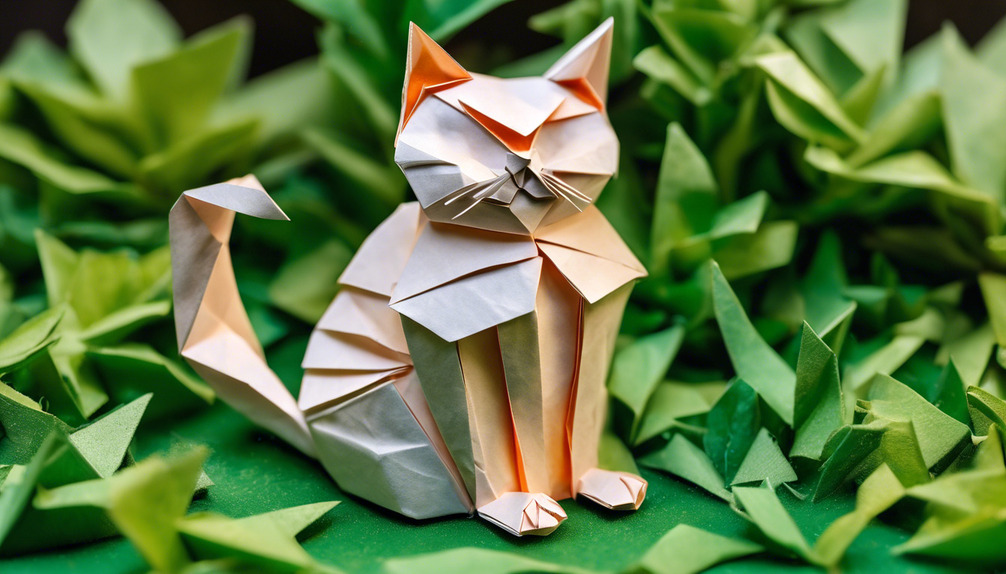Your older cat has become more tired and less interested in food, a common issue for aging pets.
Finding the right nutrient balance for your older cat’s diet, especially one rich in protein, is important but can be challenging.
With so many options available, it’s essential to make informed choices that align with your cat’s specific needs. Let’s explore some of the top protein-rich diets for aging felines, and how they can make a positive impact on your cat’s health and vitality.
Key Takeaways
- Protein is crucial for the overall health and well-being of senior cats to address sarcopenia and potential kidney function reduction.
- Senior cat foods should have adequate protein levels suitable for their needs, with a focus on high-quality, easily digestible protein sources like chicken.
- Consulting with a veterinarian is important to determine the optimal dietary protein levels for your senior cat, taking into account individual health needs and potential kidney health issues.
- Carefully monitoring protein intake is essential to maintain the health and vitality of senior cats, ensuring a delicate balance and avoiding overfeeding poor-quality protein.
The Importance of Protein for Senior Cats
As your cat enters their senior years, it becomes increasingly vital to prioritize their intake of high-quality protein for their overall health and well-being. Just like humans, older cats have specific nutritional requirements, and protein plays a crucial role in meeting those needs.
It’s essential to understand that as cats age, their bodies undergo various changes, including a potential reduction in kidney function. This makes the quality of protein they consume important. Adequate protein intake is also crucial for addressing sarcopenia, the age-related loss of skeletal muscle mass and strength in older cats.
You must pay close attention to the protein levels in your senior cat’s diet and ensure that the source and quality of the protein are suitable for their aging bodies. Even though some senior cat foods may have reduced protein levels to accommodate potential kidney issues, it’s important to ensure that the protein is still adequate for your cat’s needs.
Factors to Consider for Senior Cat Diets
When considering diets for your senior cat, it’s crucial to carefully evaluate several key factors to ensure their health and well-being as they age.
One of the most critical factors is the protein levels in their diet. While aging cats may have reduced kidney function, it’s essential to understand that protein is still vital for their overall health. Sarcopenia, the loss of skeletal muscle mass, can be influenced by protein deficiency and reduced activity levels in older cats.
Therefore, it’s important to provide your senior cat with high-quality, easily digestible protein sources, such as chicken, to support their muscle mass and overall well-being. When selecting cat food, be sure to check the ingredient list for these protein sources.
Consult with a veterinarian to determine the optimal dietary protein levels for your senior cat, considering their individual health needs and potential kidney health issues.
Considering the protein needs of your aging cat, it’s crucial to prioritize high-quality, easily digestible protein sources to support their muscle mass and overall well-being. As your cat enters their senior years, their body’s ability to process protein may decrease, making the quality of the protein they consume even more important.
Here are some top picks for protein-rich diets formulated for older cats to help maintain their health and vitality:
| Brand | Protein Level | Formulation |
|---|---|---|
| Blue Buffalo | High | Specifically for older cats |
| Now Fresh | Elevated | Tailored for senior cats |
| IAMS ProActive | Rich | Designed for aging felines |
These cat foods are formulated to provide high levels of protein while also considering the unique needs of aging felines. By choosing a diet with the right balance of nutrients, including protein, you can help support your cat’s muscle mass, kidney health, and overall well-being in their later years.
Transitioning Senior Cats to High-Protein Diets
When you switch your older cat to a diet higher in protein, you need to do it slowly and carefully to avoid upsetting their stomach. As cats get older, they often need more protein, so changing their diet is important. It’s essential to watch how they react to the new diet and make any needed changes.
The protein quality is paramount, and opting for highly digestible sources such as animal proteins, particularly chicken, can support their aging digestive system. The essential amino acids in high-quality protein are vital for maintaining your senior cat’s muscle mass and overall health. High-protein diets can aid in supporting their urinary tract health, a common concern in aging felines.
Talking to a vet, particularly one who follows the Association of Feline Practitioners’ rules, can give you useful advice for your older cat’s care. By paying attention to your older cat’s switch to a high-protein diet and giving them the support they need, you can help them do well in their later years.
Monitoring Protein Intake for Senior Cats
As your beloved senior cat ages, carefully monitoring their protein intake becomes paramount to ensuring their well-being and vitality.
When it comes to the protein content in your aging cat’s diet, it’s crucial to strike a delicate balance. While protein is essential for your senior cat’s health, overfeeding poor-quality protein can worsen chronic kidney disease, which is common in older cats.
To ensure the best for your cat, focus on providing high-quality, easily digestible protein sources such as chicken and eggs. It’s important to maintain a protein level in your cat’s diet similar to what it ate in its prime years, while also considering its kidney health. Keep an eye on the crude protein percentage on a dry matter basis in the cat food you choose.
Frequently Asked Questions
What Is the Best Food to Feed an Elderly Cat?
For your elderly cat, focus on high-quality, easily digestible protein like chicken. Keep protein levels similar to their prime, but avoid overfeeding poor quality protein, if your cat has kidney disease. Balance is key for their well-being.
Is Too Much Protein Bad for Senior Cats?
Excessive protein can strain aging cats’ kidneys. Balance is key; focus on high-quality, easily digestible sources. Keep an eye on protein levels, as they increase with age, but consult a vet for personalized advice.
What Is a High Protein Diet for Cats?
For your aging cat, a high protein diet should consist of quality sources like chicken and eggs. It’s essential to carefully monitor protein levels, if your cat has kidney disease. Consult a vet for personalized advice.
What Food Can I Give My Elderly Cat to Gain Weight?
You can help your elderly cat gain weight by offering high-quality, easily digestible protein sources like chicken and eggs. Consult your vet for personalized advice and consider high-protein senior cat foods for balanced nutrition.




